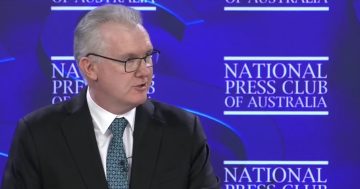Andrew McKean* says a draft bill could offer better protections for Australian crypto investors.
 Liberal senator Andrew Bragg has released a draft bill for consultation that introduces licences for digital asset exchanges, custody services, stablecoin issuers, and instigates disclosure requirements for Chinese state-owned banks that facilitate e-Yuan in Australia.
Liberal senator Andrew Bragg has released a draft bill for consultation that introduces licences for digital asset exchanges, custody services, stablecoin issuers, and instigates disclosure requirements for Chinese state-owned banks that facilitate e-Yuan in Australia.
Bragg cited the government’s inaction on digital assets as the reason why Australia has fallen behind on consumer protection and investment promotion.
He added that Labor and minister for financial services Stephen Jones had failed Australian consumers by not already releasing a draft bill.
Ensuing these perceived inadequacies, Bragg said: “As a result of the government’s failure to progress and deal with these issues, I have taken it upon myself to develop a Private Members Bill – the Digital Assets (Market Regulation) Bill 2022.”
The draft Bill requires digital asset exchanges to include requirements relating to the maintenance of a minimum amount of capital and the regulation of its participant’s conduct.
Further, stablecoin issue requirements dictate that the full amount of the face value of the liabilities for the stablecoin on issue from the licensee must be held in reserve, in financial institutions licensed by APRA.
The Act also targets the e-Yuan, the first CBDC to be issued by a major economy, requiring that its facilitators which are predominantly Chinese state-owned banks, disclose data to APRA and the Reserve Bank of Australia (RBA) on its use in Australia.
In a speech to the Blockchain Association Forum Summit, Bragg explained: “The bill requires that these banks report on the aggregate quantity of Australian businesses who have accepted e-Yuan payments, the quantity of digital wallets opened by Australian customers and the aggregate quantity of e-Yuan held in those wallets.”
“We need to closely analyse the development and expansion of the e-Yuan, in conjunction with wider developments in the CBDC space, if we are to pre-empt the risks of currency substitution and privacy breaches.
“Transparency is part of the solution.”
Responding to the Bill, Labrys founder and chief executive Lachlan Feeny said: “Senator Bragg has been a strong advocate for the industry and regulatory clarity.
“Regulatory clarity is important and will be good for the industry.”
“However, we must be careful to not impose licensing restrictions that protect the existing exchanges but raise the bar so high that it becomes anti-competitive and deters new entrants.
“As the industry – and Australia’s position within it – continues to establish itself, we must encourage, not deter, participation and innovation.”
Also weighing in, BTC Markets chief executive Caroline Bowler said: “We agree with the intended outcomes of senator Braggs draft bill – strengthened consumer protections and increased investment are both necessary for a stronger Australia.
“The draft bill proposes to regulate the activities regarding digital assets, rather than the assets themselves.
“Exchanges who want our industry to thrive will also agree with the fair, orderly and transparent operational requirements.
“We will require further detail however, as it is not yet clear on issues such as minimum capital requirements or information disclosure for example.”
“The proposed bill also includes the requirement for digital asset custody to remain in Australia.
“BTC Markets agrees with this position, as it ensures greater consumer protection for Australians under existing laws.”
“It is also the first time that the digital yuan has been specifically mentioned in connection to digital asset regulation in Australia.
“One question would be if this would sit alongside or in addition to existing International Fund Transfer Instructions (IFTI) reporting currently required to AUSTRAC by the banks.”
*Andrew McKean is a journalist at Financial Standard. He covers superannuation, wealth management and financial advice.
This article first appeared at financialstandard.com.au.











